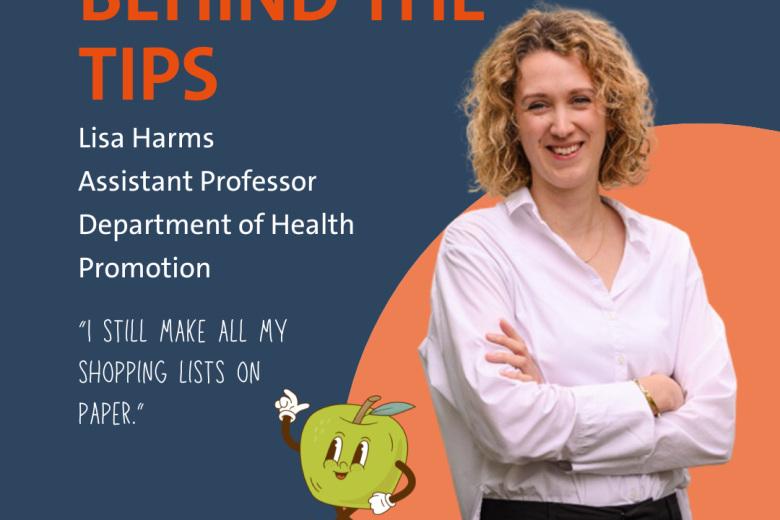Emma Goslin - health goes beyond medical research
Staff and students strive to make a difference at the Faculty of Health, Medicine and Life Sciences. For instance, Jan and Bram focus on programming. And Ellen is working on waiting times management in healthcare for her thesis. In 'Nice to meet you' these individuals introduce themselves and share their work within FHML.
Your health—and, by extension, your quality of life—is significantly influenced by factors including the social, economic, and cultural status of the country in which you live. These determinants are connected and shape your health in complex ways. The differences in status and how they impact the choices people can make, shape health inequities within and between countries. Emma Goslin, a current student in the master’s Global Health, was drawn to the programme after witnessing these inequities first-hand during her medical placements.
Emma has always been interested in health in the broadest sense of the term. “Health goes beyond medical research and care. It is shaped by politics, international health organisations, transnational threats such as climate change, and much more. These large-scale factors influence the lives of individuals. That’s what I encountered during my medical internships and what sparked my interest in Global Health.”
It takes a village… or a classroom
Emma can use her medical background to identify the direct health consequences of global challenges such as pollution or forced migration. But that’s not enough to solve these issues. “Once we understand the complex interactions between the social, economic and political factors that affect health, we understand that one discipline can’t provide a solution. Physicians need to work together with politicians, legal experts, medical anthropologists and others to create meaningful change.” Luckily for Emma, those are the kinds of students who also enrol in Global Health to learn how to work together interdisciplinary and critically reflect on existing healthcare systems.
To truly understand the differences in healthcare systems between countries, Global Health students can take part in an exchange programme with other universities. Emma chose to move to Bangkok for a few months. “I’m taking courses in migration, human rights, and political economy. At the same time, it’s very interesting to see how culture and history can shape people’s perspective on public and global health.”
Once we understand the complex interactions between the social, economic and political factors that affect health, we understand that one discipline can’t provide a solution.
Responding to climate change
According to Emma, few global health threats are as dangerous as climate change. That’s why she holds a special interest in it. “Climate justice and health is a topic that brings together everything we learn in the master’s programme. The climate crisis is already reshaping every dimension of health and will continue to do so. Whether it is changes in infectious diseases or, for example, access to reproductive health care. It is also exacerbating existing health inequities. Working together on an international level with policymakers and experts, and critically reflecting on the systems in place needed to better equip ourselves for this global threat.”
A broader sense of health
After her master’s in Global Health, Emma will continue with her master’s in Medicine. The combination will open more possible career paths for her. “There are still many opportunities to make the healthcare system more adapted to the complexities of global health”, she explains. “I’m still deciding whether I will return to patient care with a broader understanding of health or rather choose something in policy or research. In any case, the master’s in Global Health also lets you discover some things about yourself: what global problems there are and how to best engage yourself and your skills in the future.”
Also read
-
Ellen Bastiaansen - the new HPIM student
A new generation of young professionals is stepping up to the challenges that the healthcare sector faces today. Including Ellen Bastiaansen, a master’s student in Healthcare Policy, Innovation and Management with a background in prevention and mental health.

-
Obesity: Look beyond body weight
In his inaugural address on 11 October, Professor Gijs Goossens, Professor of Cardiometabolic Physiology of Obesity, highlighted the crucial role adipose tissue plays in our metabolism and overall health. The more we understand about this complex chronic condition, the better we can address the...

-
Evidence-based health tips for students: supermarket psychology
In the upcoming months, we’ll share tips on Instagram for our students on how to live a healthier life. Not just a random collection, but tips based on actual research happening at our faculty. The brains behind this idea are Lieve Vonken and Gido Metz, PhD candidates at CAPHRI, the Care and Public...
